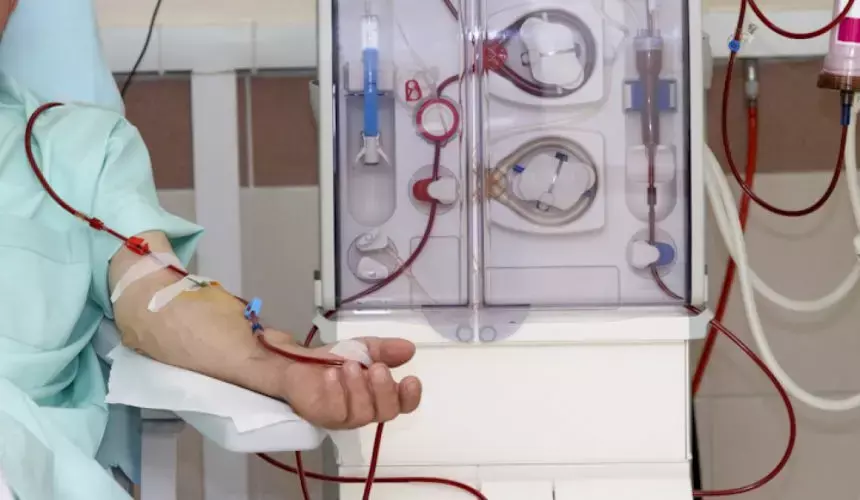- Home
- Medical news & Guidelines
- Anesthesiology
- Cardiology and CTVS
- Critical Care
- Dentistry
- Dermatology
- Diabetes and Endocrinology
- ENT
- Gastroenterology
- Medicine
- Nephrology
- Neurology
- Obstretics-Gynaecology
- Oncology
- Ophthalmology
- Orthopaedics
- Pediatrics-Neonatology
- Psychiatry
- Pulmonology
- Radiology
- Surgery
- Urology
- Laboratory Medicine
- Diet
- Nursing
- Paramedical
- Physiotherapy
- Health news
- Fact Check
- Bone Health Fact Check
- Brain Health Fact Check
- Cancer Related Fact Check
- Child Care Fact Check
- Dental and oral health fact check
- Diabetes and metabolic health fact check
- Diet and Nutrition Fact Check
- Eye and ENT Care Fact Check
- Fitness fact check
- Gut health fact check
- Heart health fact check
- Kidney health fact check
- Medical education fact check
- Men's health fact check
- Respiratory fact check
- Skin and hair care fact check
- Vaccine and Immunization fact check
- Women's health fact check
- AYUSH
- State News
- Andaman and Nicobar Islands
- Andhra Pradesh
- Arunachal Pradesh
- Assam
- Bihar
- Chandigarh
- Chattisgarh
- Dadra and Nagar Haveli
- Daman and Diu
- Delhi
- Goa
- Gujarat
- Haryana
- Himachal Pradesh
- Jammu & Kashmir
- Jharkhand
- Karnataka
- Kerala
- Ladakh
- Lakshadweep
- Madhya Pradesh
- Maharashtra
- Manipur
- Meghalaya
- Mizoram
- Nagaland
- Odisha
- Puducherry
- Punjab
- Rajasthan
- Sikkim
- Tamil Nadu
- Telangana
- Tripura
- Uttar Pradesh
- Uttrakhand
- West Bengal
- Medical Education
- Industry
Sodium polystyrene sulfonate use in hemodialysis patients tied to death from GI harm: Study

New Delhi: The use of sodium polystyrene sulfonate (SPS) in patients on hemodialysis may increase the chance of dying from gastrointestinal harm. The findings of the study were presented at the American Society of Nephrology's Kidney Week 2021.
There are increasing concerns regarding the gastrointestinal (GI) safety of sodium polystyrene sulfonate (SPS), a medication commonly used in the management of hyperkalemia. The objective is to compare the risk for fatal, non-fatal and their composite GI events following initiation of SPS in patients on hemodialysis compared to non-use.
In the study, potassium binder SPS was given to 7107 (11.2%) of the 63,323 patients on hemodialysis (HD) in the 2002-2018 Dialysis Outcomes and Practice Patterns Study (DOPPS). In 895 patients (1.41%), physician-determined fatal gastrointestinal events occurred, including 150 (2.11%) who were administered SPS and 1.33% who did not take the medicine. Mesenteric infarction/ischemic bowel, intestine perforation, and peptic ulcer perforation were all fatal occurrences.
Farfan Ruiz AC and team reported that after propensity score matching, scientists discovered a substantial 30% elevated risk for fatal gastrointestinal events among SPS users versus nonusers. The researchers also looked at facility-level data. In comparison to dialysis facilities with no SPS usage, facilities with 1-10%, 11-20%, 21-30%, and more than 30% SPS use had 24 percent, 82%, 11%, and 46% higher risks for fatal gastrointestinal events, respectively. Except for facility-level SPS utilization of 21-30%, all results were statistically significant.
According to the data, about one in every 128 dialysis patients who got SPS had a fatal gastrointestinal incident. Younger and male patients showed 2.4- and 1.7-fold higher risks, respectively. Both the presence of peripheral vascular disease and the lack of coronary artery disease was linked to a 1.5-fold higher risk. A dialysis vintage of more than 4 years and no diuretic usage were both linked with a 1.4-fold and 1.7-fold higher risk of fatal gastrointestinal events, respectively. The increased risk was also associated with the country of origin and a more recent era. The DOPPS cohort had a mean age of 65.4 years, with 61.6 percent being male. DOPPS countries included Australia/New Zealand, Belgium, France, Italy, Japan, Spain, Sweden, and others.
"Our results add to the growing concerns of SPS use as a therapeutic agent for the management of hyperkalemia," Dr. Ruiz stated in conclusion.
Reference:
Farfan Ruiz AC, Malick R, Rhodes E, et al. Fatal gastrointestinal events with sodium polystyrene sulfonate use in hemodialysis: an international cohort study. Presented at: Kidney Week 2021, November 2-7, 2021. Poster PO0849.
Medical Dialogues consists of a team of passionate medical/scientific writers, led by doctors and healthcare researchers. Our team efforts to bring you updated and timely news about the important happenings of the medical and healthcare sector. Our editorial team can be reached at editorial@medicaldialogues.in.
Dr Kamal Kant Kohli-MBBS, DTCD- a chest specialist with more than 30 years of practice and a flair for writing clinical articles, Dr Kamal Kant Kohli joined Medical Dialogues as a Chief Editor of Medical News. Besides writing articles, as an editor, he proofreads and verifies all the medical content published on Medical Dialogues including those coming from journals, studies,medical conferences,guidelines etc. Email: drkohli@medicaldialogues.in. Contact no. 011-43720751


